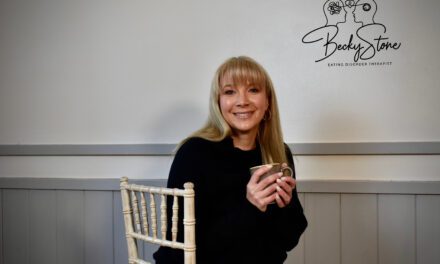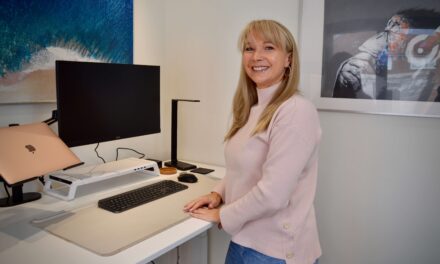Wake-Up Call in Eating Disorder Recovery.
The Turning Point in My Eating Disorder Recovery
Eating disorder recovery often starts with a moment that shakes you to your core. For me, it happened one evening in my kitchen, utterly exhausted, lightheaded, and scared that if I collapsed, my kids would be left alone. That terrifying moment became my wake-up call. It made me realise something had to change.
Suddenly, my head went back.
I could feel myself about to pass out.
The room blurred, my hands felt weak, and one terrifying thought hit me like a train:
If I collapse right now, my kids will be alone in this flat. The gas is on. No one will know.
That moment changed everything.

the realisation that saved my life
For years, I had ignored the warning signs, skipping meals, overexercising, and chasing a number on the scale that I thought would bring me happiness. But standing there, barely able to hold myself up, I realised the harsh truth:
This wasn’t just about me anymore.
I wasn’t just hurting myself; I was hurting the people I loved most. My children needed me, and if I didn’t take action, I risked leaving them to fend for themselves.
That night, I made a decision that would redefine my life:
F*ck this. I want to live.
Eating disorder recovery isn’t just about eating more or exercising less. It’s about finding a reason to live. It’s about reclaiming your purpose and realising that you are worth so much more than your eating disorder.
When I work with clients now, one of the first questions I ask them is:
“What is making you want to get better?”
Because that reason, whether it’s your family, your future, or just the deep, quiet desire to finally be free, will carry you through the hardest days.
How to find your reason
If you’re reading this and feel stuck, I want to help you take the first step. Ask yourself:
1
What's your wakeup call?
Consider what truly matters to you. Is it family, personal growth, or a future free from struggle? Identifying your core values can guide your recovery.
2
What is the life you want beyond this disorder?
Imagine the life you want to lead beyond your current challenges. What does happiness look like for you? This vision can serve as a powerful motivator.
3
Who or what gives you the motivation to heal?
Think about the people who inspire you to heal. Whether it’s friends, family, or a community, having a support network can make all the difference.
For me, it was my children. For you, it could be your family, your dreams, or simply the idea of waking up one day free from the constant battle in your mind.
Your Journey Starts with One Step
I’ll be honest; recovery isn’t easy. But it’s worth it.
I had to rebuild my relationship with food, rediscover how to trust my body, and learn how to prioritise my mental and physical health. Through that process, I discovered something incredible:
Life is so much more than a number on a scale.
Today, I help others find their reasons for recovery, guiding them to reclaim their lives and rewrite their stories. Because if there’s one thing I know for sure, it’s this:
Nothing is worth losing yourself for.

Ready to start your journey?
If you’re struggling and don’t know where to start, let’s talk. Recovery doesn’t happen overnight, but every small step you take matters.
What’s the one thing holding you back from recovery? Share your thoughts below or reach out. I’d love to help you find your reason to heal.
Struggling with an eating disorder and ready to take the first step? Click the link below to start your recovery with a trusted Eating Disorder Therapist
Helpful Links/Support:
https://www.beateatingdisorders.org.uk/
https://www.mind.org.uk/
https://www.nhs.uk/mental-health/





